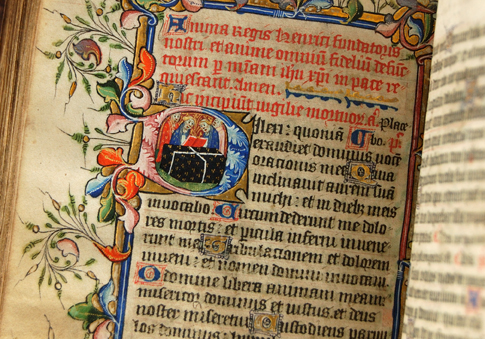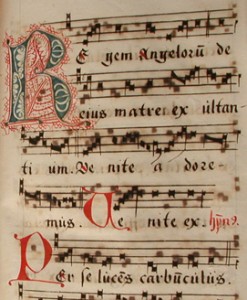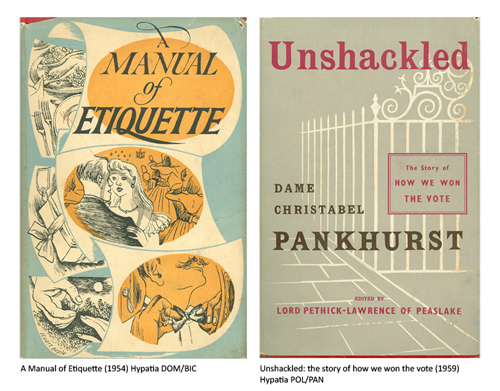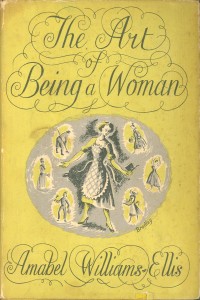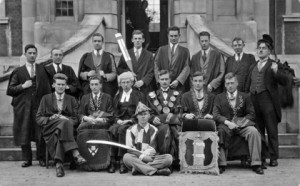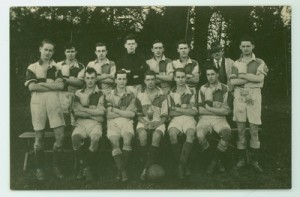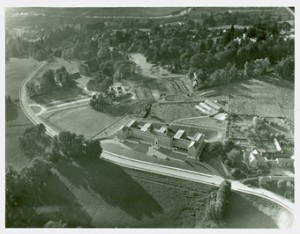We are lucky enough to care for some amazing collections here in Special Collections and one of our most widely used and most beautiful are the Syon Abbey collections.
The community of Bridgettine nuns at Syon Abbey, South Brent, Devon is unusual in being able to trace an unbroken tradition reaching back to their Abbey’s foundation. The order founded at Syon Abbey in 1415 became a major focal point of religious activity in the sixteenth-century and was well-known for its publication of religious literature. A surviving set of rules for Syon Abbey emphasises the importance of books and instructs the sisters in their proper care. Both the nuns and the monks had their own libraries but no catalogue of the nuns’ medieval library has survived and little is known about what physically happened to either of the libraries following the Abbey’s dissolution in 1539.
At the dissolution, the nuns went into exile and lived first in the Low Countries and later in Portugal. From the mid-sixteenth-century to 1809, when the nuns returned to England, the sisters lived as an English community at Lisbon. The collection of archives and books attracts considerable research interests from throughout the world.
The collections contain liturgical and theological manuscripts, dating between the 15th and 17th centuries and the extensive book library contains pre-1850 titles from the library of Syon Abbey.
Information on the archives can be seen on our online archives catalogue here and the books are catalogued on the library catalogue. There is further information on our website at http://as.exeter.ac.uk/library/about/special/.

